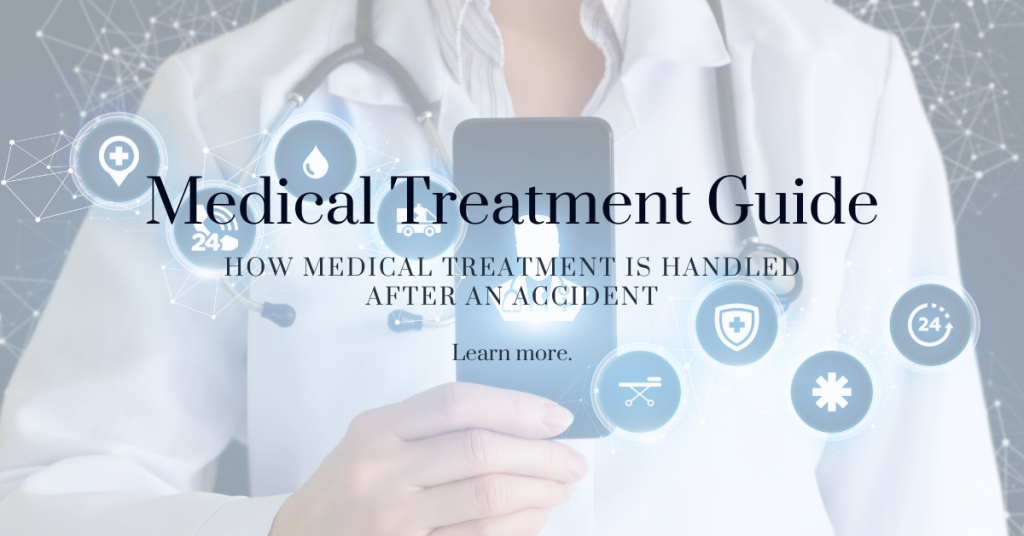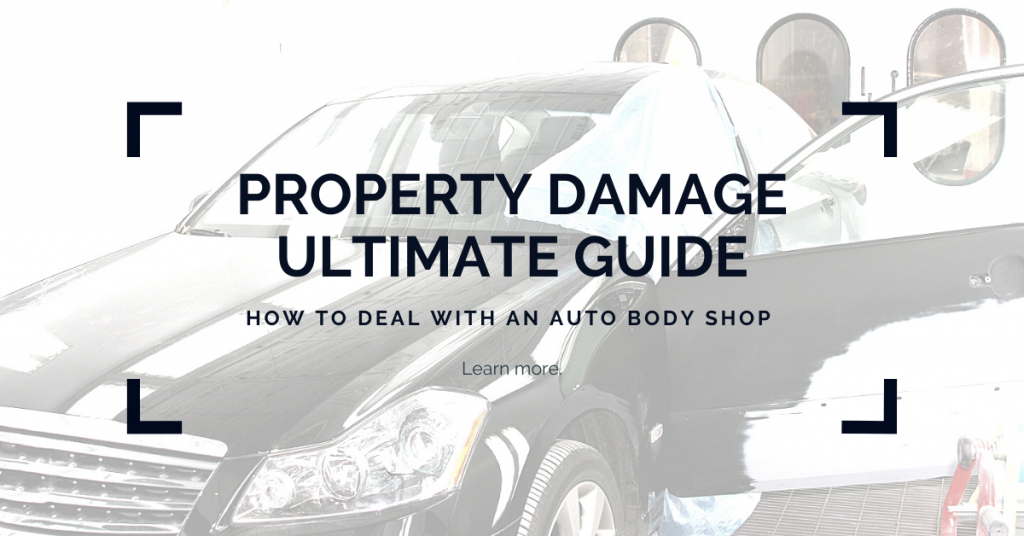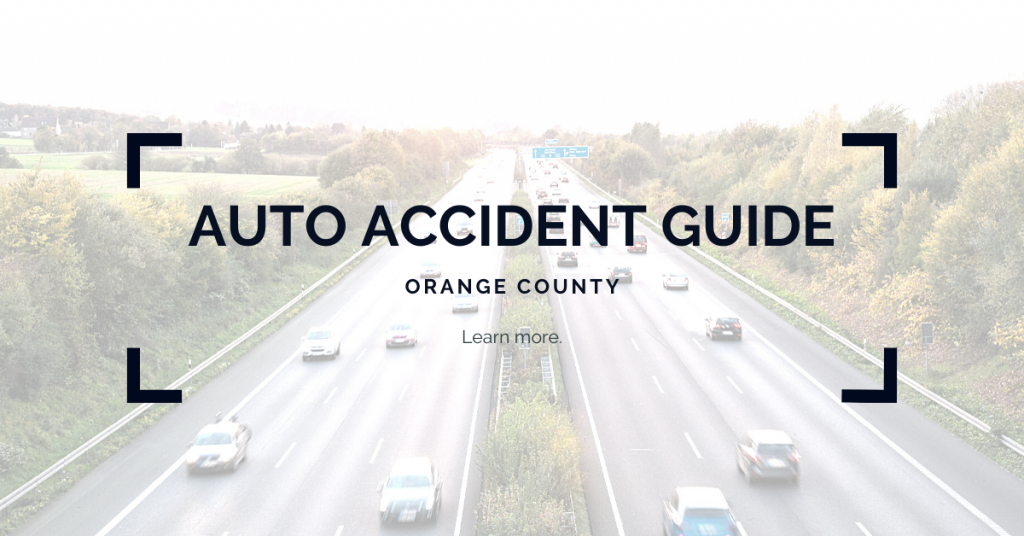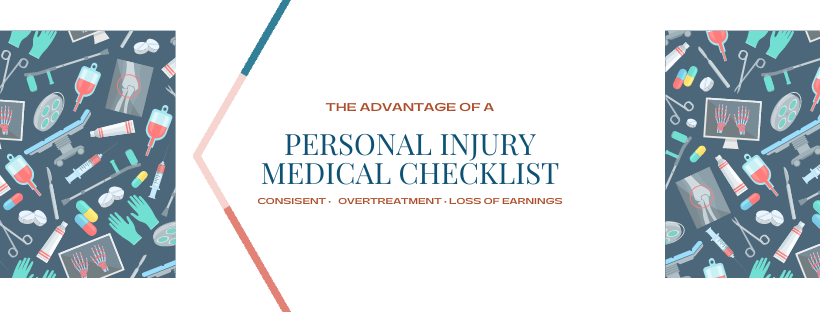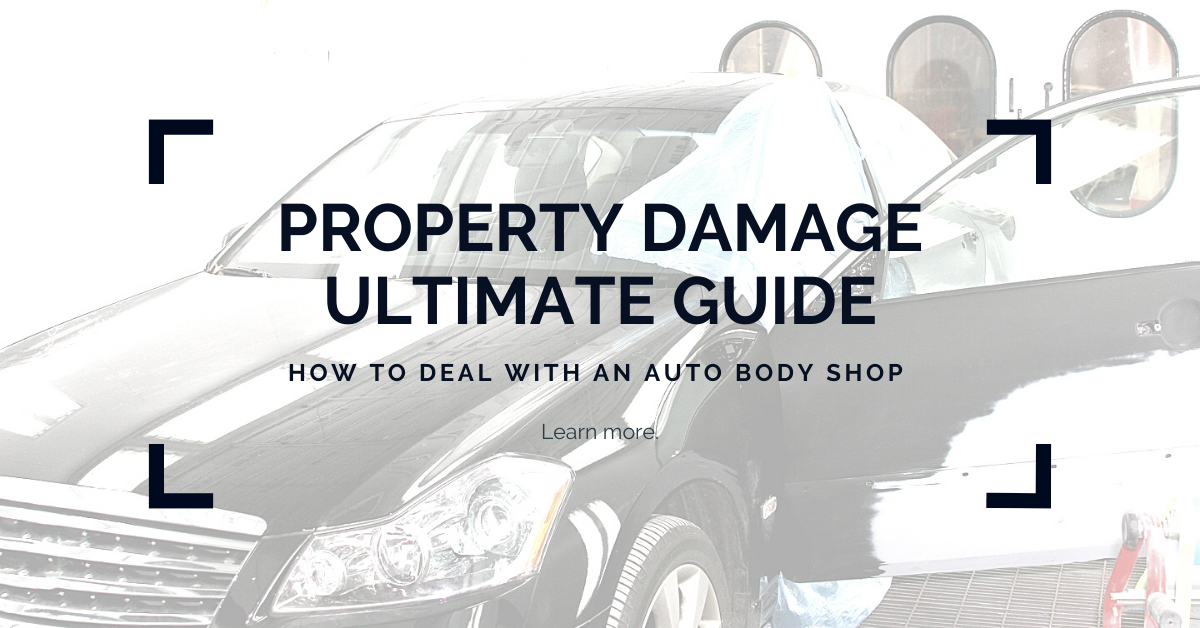Perhaps the most common concern we hear from clients who have just been in an accident – after the issue of receiving medical care for their injuries – is the question of what will happen to their car.
It can be easy for outsiders to dismiss property damage as trivial in comparison to bodily injury. But for many of our clients, it isn’t that simple: cars are necessary for many of the basic functions of life in our society, and when your car is damaged or destroyed, much of your day-to-day existence is thrown into disarray.
To compound things, property damage and bodily injury are indirectly tied together: if you don’t have a car, it can be harder for you to get the medical treatment you need.
That is why, instead of dismissing property damage as a side issue, our firm treats it as a crucial element of the case.
How We’re Different: Unlike many personal injury firms, which focus on medical bills and leave clients to handle property damage on their own, Accident Counsel will handle the property damage side of your case for you, in addition to your medical bills.
There is one caveat we should issue here. In minor accidents, where there was only property damage and no one was injured, it is generally not necessary to hire a personal injury attorney. Many of these cases can be handled without a lawyer’s help, and the extra settlement that we – or any other attorney – could get you would probably not be worth the cost of attorney’s fees, if indeed we could get you any additional settlement at all.
There are only a few rare cases, where something has gone very wrong with the property damage side of the case, that hiring an attorney will become necessary. Otherwise, you can typically handle personal injury cases on your own, with the help of your insurance carrier.
Generally, therefore, we don’t accept cases that involve merely property damage. However, if you retain our services as your attorneys for a personal injury case involving property damage, then we will handle your property damage-related matters for you.
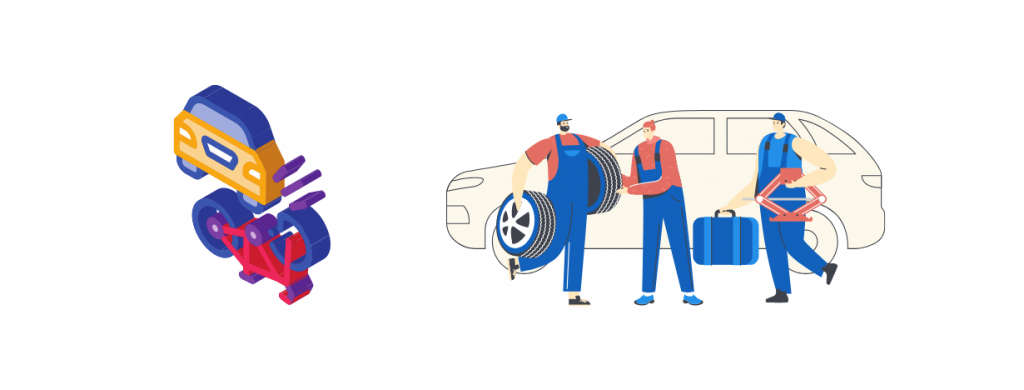
What Counts as “Property Damage”?
In an auto accident, the piece of property that suffers the most substantive damage will likely be your car (or tuck or motorcycle or other vehicle), and so our article will focus primarily on how to deal with vehicular damage.
However, vehicles are not the only types of property that can be damaged in an accident. You may also suffer damage to personal possessions such as phones, watches, and so forth. Since a decent smartphone can cost several hundred dollars, these items of property should not be overlooked.
One interesting item covered by property damages is veterinary expenses. Your pet is legally considered to be your property, and so the cost of any injury to them will fall into this category as well.
As your attorneys, our advocacy on your behalf is not necessarily limited to your car: we will fight for you to recover the maximum amount for any valuable property damaged.
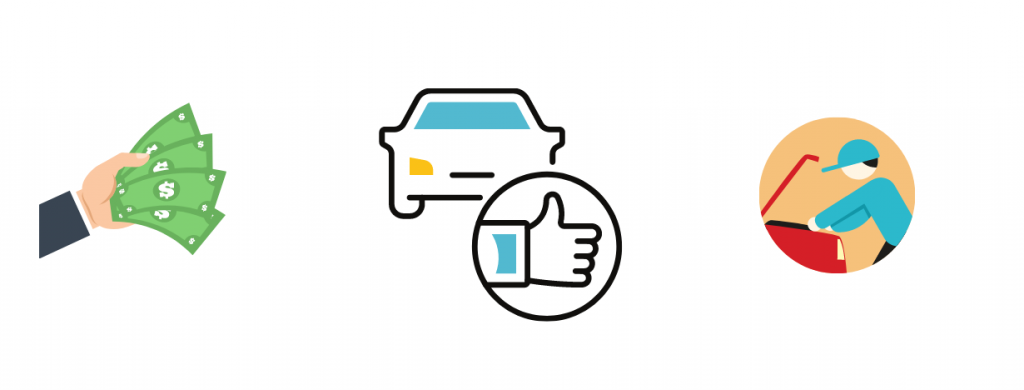
How to Recover Property Damages from Insurance
In California (as in just about every other state), drivers are required to carry third-party liability coverage if they get in an accident. If someone hit you and they were at fault, then their liability coverage is supposed to pay for your damages.
Drivers in California are required to carry at least $5,000 in property damage coverage. In practical terms, this means that if you are in an accident with an at-fault driver, they will have to cover the costs of your damaged property… up to $5,000.
The value of $5,000 should never be underestimated. However, California’s property damage limits are lower than those of many other states (and have not been adjusted for inflation in a number of years), and so this might not be enough to cover the full value of your car.
If your damages exceed $5,000, there are still a few routes open to you:
• We may be able to sue the at-fault driver directly. However, this is not always a fruitful option, as many people do not have enough in assets to cover extensive auto damages.
• We may be able to help you recover damages from other types of insurance coverage, including underinsured (UIM) coverage. However, this only works if you have one of these types of coverage.
Also keep in mind that many drivers (wisely, in our view) choose to buy more than $5,000 in property damage liability coverage; that is simply the minimum mandated legal requirement.
What Does It Mean if My Car Is Totaled?
After an accident, the biggest property-damaged related question will be whether your car was totaled.
If you think you know what totaled means, then keep reading: the definition Is a bit more technical than some people think. It doesn’t just mean “completely destroyed;” in fact, cars which have suffered fairly minor damage, with most of their parts still working, can be deemed a total loss.
A determination of total loss means that your vehicle, in short, is more trouble to replace than it is worth. This calculation involves three factors:
- The Cost of Repairs, or how much it would take to repair the damage to your car.
- The Actual Cash Value, or how much your car is worth on the open market.
- The Salvage Value, or how much your car would be worth if resold for parts (typically not a lot, although sometimes fairly high depending on the value and condition of your car’s specific parts).
If the Cost of Repairs and the Salvage Value are equal to or greater than the Actual Cash Value, then your car will be deemed a total loss.
Or, if you’re into equations:
Cost of Repairs + Salvage Value ≥ Actual Cash Value.
This is known as the Total Loss Formula (TLF).
A couple of examples may be in order here:
Example 1: Your car is worth $7,000 on the open market (Actual Cash Value). You get in an accident which does $3,000 worth of damage to your car (Cost of Repairs), and the value oh your vehicle if sold for parts is $1,000 (Salvage Value).
In this case, your car is not totaled, because the Cost of Repairs and Salvage Value ($3,000 + $1,000) are less than the Actual Cash Value ($7,000).
Example 2: The Actual Cash Value of your vehicle is still $7,000, and the Salvage Value of your vehicle is still $1,000. However, you get in an accident which damages your vehicle more severely, so that the Cost of Repairs is $6,500.
In this case, your car is totaled, because the Cost of Repairs and Salvage Value ($6,500 + $1,000) are together greater than the Actual Cash Value.
(Note that this is the formula for California. Some other states determine total loss differently, so if you have dealt with the system elsewhere, don’t expect what you learned there to necessarily apply here.)
So, what does this mean? Well:
If your car was totaled, and another driver was at fault, then the at-fault driver’s insurance company is required to pay you the full monetary value of your vehicle.
If your car was damaged but not totaled, then the at-fault driver’s insurance company is required to pay for the full cost of your repairs.
You probably have a strong opinion on your car being totaled, one way or another. Perhaps you want your car totaled, so that you can get the full cash value.
Conversely, you might not want your car totaled, because it may have some sentimental value to you (we know that for many people, cars are more than vessels to get from Point A to Point B), or because the value of your car is so low that it will not be enough to cover the cost of a new car.
Fortunately, there is room for negotiation. You have the right to contest the insurance company’s determination of your vehicle’s value and repair costs, and we can help you do this.
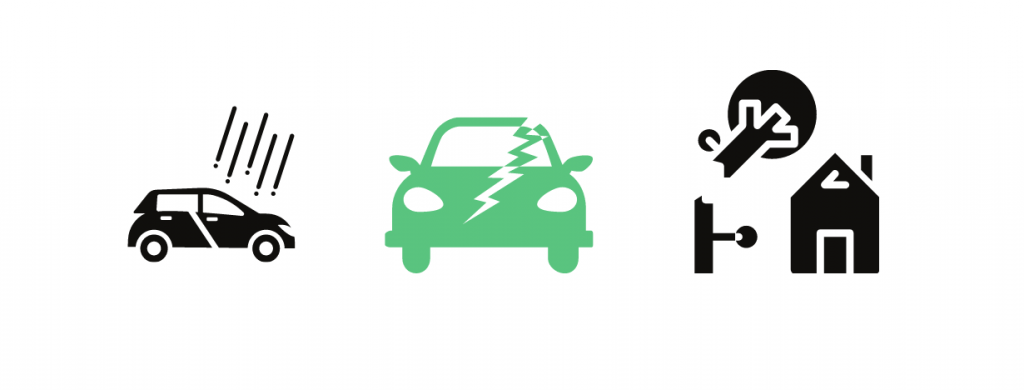
What if My Car Was Damaged Another Way?
So far, we’ve been speaking about how to recover property damage through third party liability coverage. But this isn’t the only way your car can be damaged, and your own insurance might still be able to help:
• If you were at fault in an accident, then you may recover damages through collision coverage.
• If your vehicle was damaged due to some factor other than a collision (fire, weather, vandalism, etc.) then you may recover damages through comprehensive coverage.
• If another driver was at fault but lacked the necessary insurance, or if they hit and ran, then you may recover damages though uninsured/underinsured motorist coverage.
All of this depends on what type of insurance you have, and that is why we recommend buying the most coverage you can reasonably afford.
What Happens If Your Car Is Towed
If your car is not drivable after an accident – which is common – then it will be towed.
Towing is a difficult topic, in part because it is probably not the first thing on your mind after an accident, especially if you were injured. But if you’re not careful, a lot can go wrong.
In the immediate aftermath of an accident, the police may call a tow truck for you. However, you don’t have to go with what the police say: you have every right to select a towing company of your choice and to have your car towed to a location of your choice.
You can generally trust towing companies that are called to the scene by police, but beware of tow trucks that show up on their own. Many of these unsolicited tow drivers are scammers, and you might end up losing a lot of money. Also, be very, very careful what you sign, and don’t give towing companies written permission to do anything that looks sketchy.
The biggest issue with towing, however, is that it can be pretty expensive. The costs don’t just include the initial tow, either. The long your vehicle stays at a storage yard, the more the fees pile up.
If a third-party driver was responsible for your accident, then they will be liable for your towing costs, but only up to a point. You still have a duty to mitigate damages, which means that you cannot let the car sit in the tow yard accumulating storage fees for longer than necessary.
That is why you should take your vehicle out of the tow yard as soon as you reasonably can, although not so soon that you do not give the other party’s insurance a chance to have a look at it. If you drive the car before the inspection, they might claim that you caused additional damage.
How to Handle an Auto Body Shop
If your vehicle is damaged but repairable, then it will end up being fixed at an auto body shop. And dealing with these shops can have its own set of complications.
When dealing with insurance companies and auto body shops, you as a consumer have a set of rights:
- You have the right to take the car to a body shop of your choice. You do not have to go with the shop recommended by your insurance provider, although you may do so if you want.
You have the right to get a repair estimate from the shop before any repairs are begun. Some shops charge a fee for the estimate, but they cannot start working on your vehicle without your permission. - The body shop is required to obtain your signature on a work order before starting work. This work order should describe the parts and labor involved in the repair, as well as the price. You should make certain that the work order is specific, and never, ever, ever sign a blank order.
- If repairs end up costing more than the initial estimate, then the body shop is required to get your permission before going ahead with these repairs. They cannot up the price on you without your knowledge or consent.
- The body shop is not required to release your vehicle until you have paid. However, if you have paid the full agreed-upon price, then you have the right to have your vehicle back. We’ve encountered some bad situations where body shops damage cars further and then demand more and more money to fix the damage, and if you are dealing with this type of mechanic, it is best to have a lawyer’s help.
Auto body shops do not have to guarantee their work, although many do. If the shop you choose does so, you should get a copy of the guarantee.
If you are being mistreated by the body shop, you have every right to file a complaint with the California Bureau of Automotive Repair (BAR).
Last Thoughts On Dealing With Auto Body Shops
Property damage is a serious part of an accident, and if you are already injured, property damage can become yet another stone piled on top of you.
However, with the right legal representation, property damage issues can become much more manageable. If you were injured in an accident, give us a call today, and we will see what can be done to ensure that your vehicle is repaired, or that you get it

